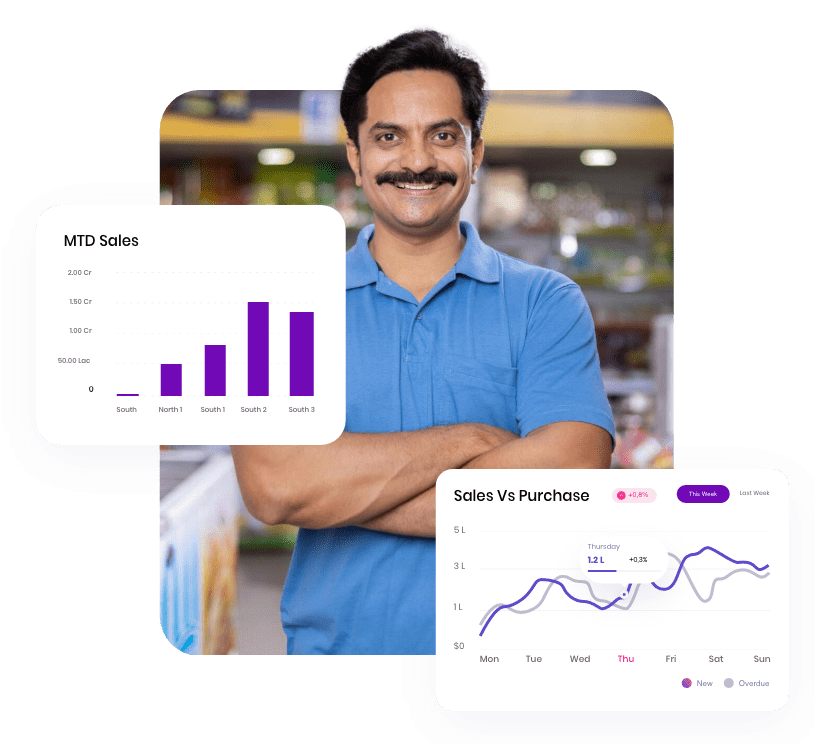
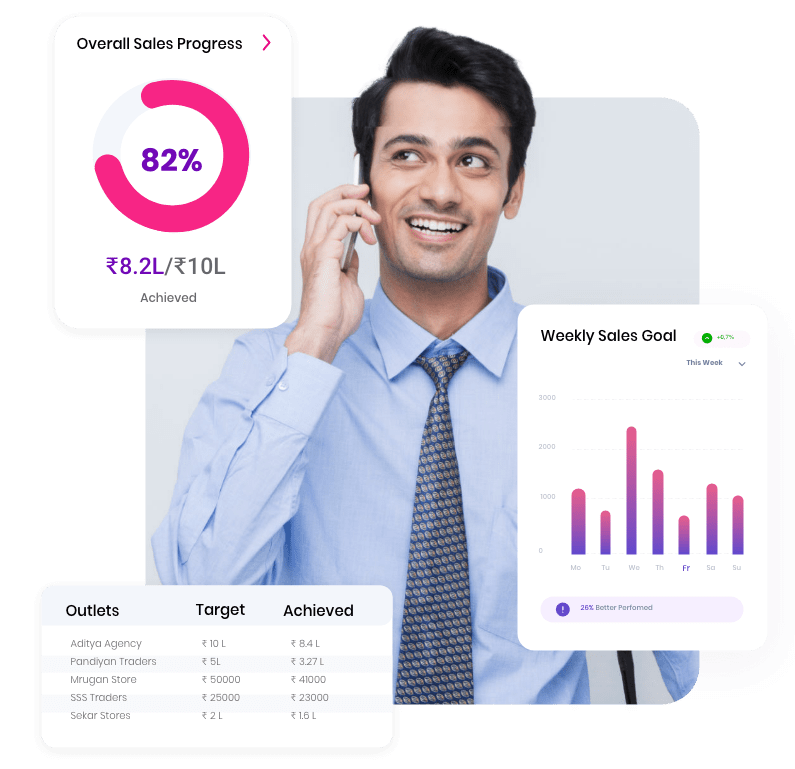
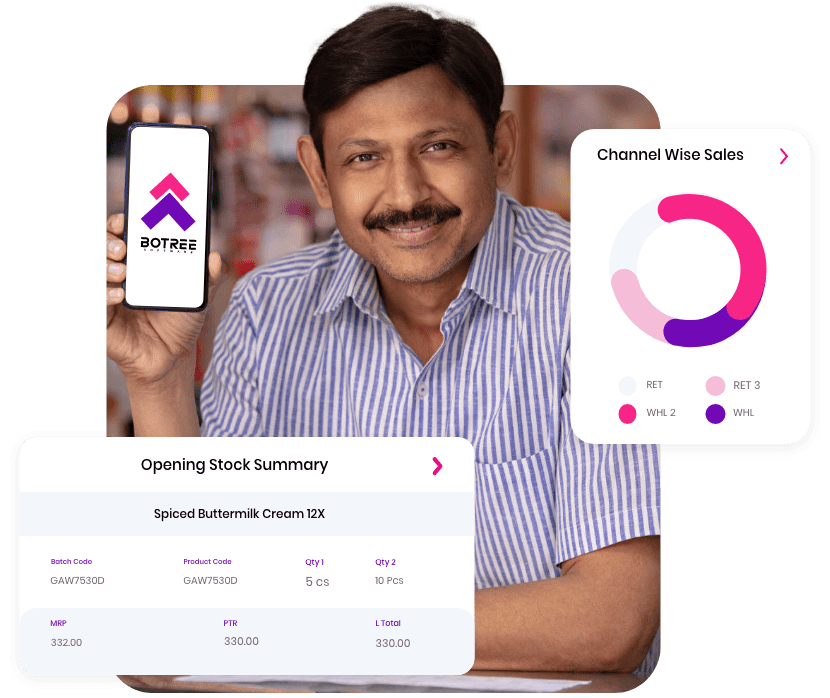



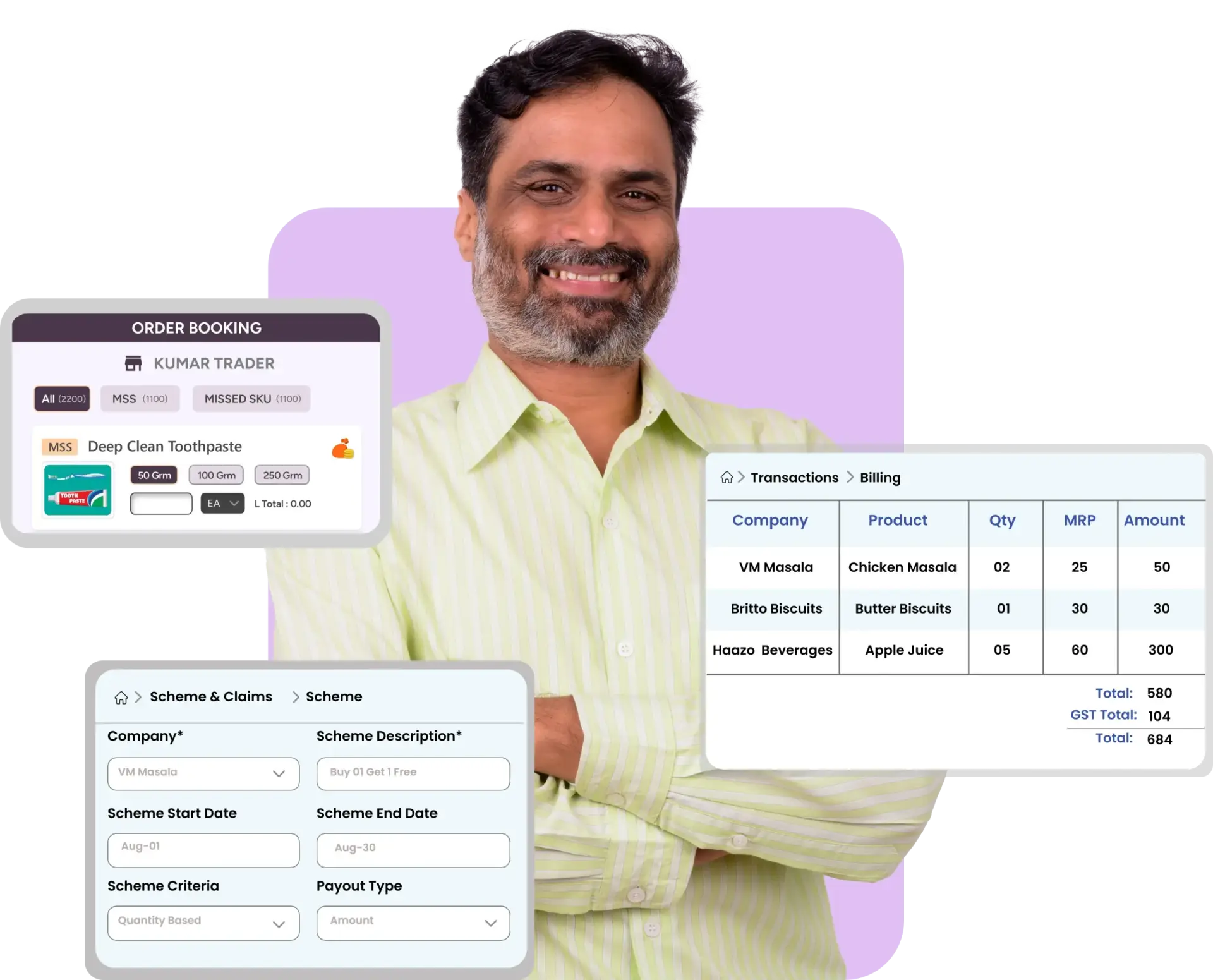








In the fast-moving consumer goods (FMCG) industry, accurately tracking sales performance is crucial for making informed business decisions. One of the key strategies to boost sales is by setting clear sales targets with attractive incentives to motivate sales representatives. Sales target achievements are often calculated based on order data or invoice data. While both methods are widely used by leading consumer packaged goods (CPG) companies, tracking sales achievements against actual sales or invoice data has been identified as a more accurate and reliable measure.
A sale is considered complete only after the successful delivery of the product ordered by a customer.
This blog highlights the benefits of tracking sales achievements against invoice data and explains why invoice data is preferred over order data in the FMCG industry. But before diving into the advantages, let’s first understand the difference between order data and invoice data.
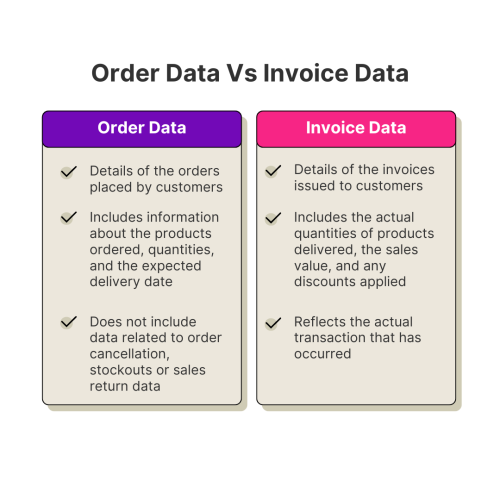
Now that we understand the difference between order data and invoice data, let’s explore how sales achievements are calculated based on each method using a real-world example.
Imagine this: You set ambitious sales goals for your FMCG (Fast-Moving Consumer Goods) company. Your sales reps hustle, placing big orders for your products. You celebrate their achievements and pay out incentives. Feels good, right?
But then reality hits. Orders get canceled, distributors run out of stock, and products never reach the shelves. Suddenly, those impressive sales figures seem a little…fuzzy.
Here’s the problem: Your sales achievement data against the order data does not account for cancellations and unfulfilled orders due to logistical challenges or other issues, leading to inaccuracies in sales reporting.
This can result in;
Read on to understand why we recommend tracking sales achievements against invoice data.
By using invoice data, the company can accurately track the products that were delivered and accepted by the retailers. This provides a true measure of sales achievement, helping the company to plan its production, manage inventory, and forecast demand more effectively.
In the fast-paced FMCG industry, accurate sales data is the difference between success and missed opportunities. Ditch the order data mirage and embrace the power of invoices. Gain valuable insights, optimize operations, and make data-driven decisions that fuel sustainable growth.
Implement invoice-based sales tracking today and watch your FMCG business soar!
Meet Priyanka Allu, our in-house content marketing specialist. With a background in literature and communications, Priyanka brings in her expertise in crafting compelling brand narratives and engaging content across various marketing channels. Outside of work, you can find her quickly escaping from the mundane city life by the beach or mountains, spending quality time with loved ones.
